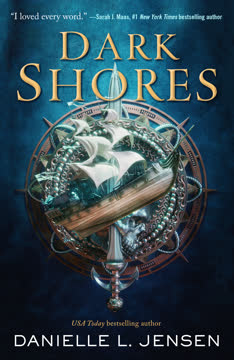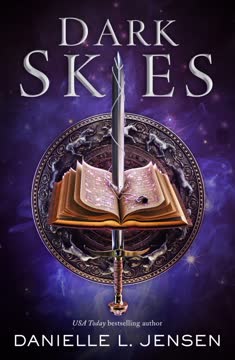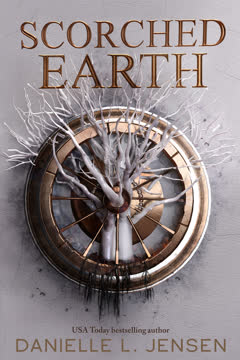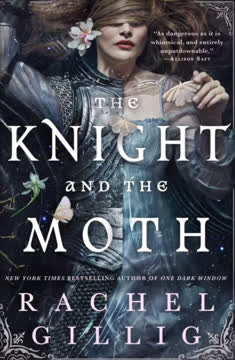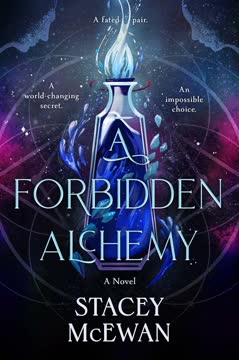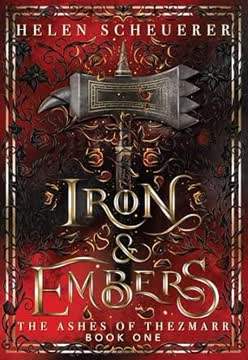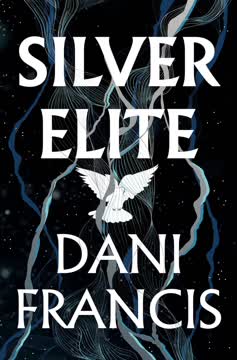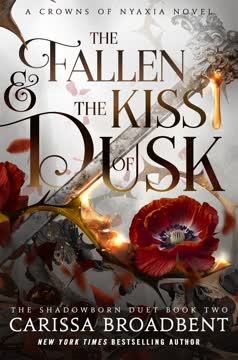Plot Summary
Tyrant's End, Storm's Beginning
The novel opens in the rain-soaked city of Aracam, where Teriana, Marcus, and the Cel legions witness the brutal execution of Urcon, the tyrant of Arinoquia. The public's thirst for vengeance is palpable, but the violence of the act and the crowd's reaction foreshadow the instability to come. Marcus, already wounded and wary, senses that Urcon's death is only the beginning of deeper troubles. The storm outside mirrors the storm within the city and the hearts of the main characters, as old wounds and new alliances are tested. The execution, meant to bring closure, instead exposes the fragility of trust and the unresolved tensions among the victors, setting the stage for the conflicts and betrayals that will follow.
Broken Loyalties, Hidden Wounds
In the aftermath of Urcon's death, Marcus struggles to maintain order among his men and the conquered city. Trust is scarce: Felix, his second-in-command, and Titus, his rival, are both under suspicion for betrayal. Teriana, still recovering from her own ordeal, is tasked with valuing the city's plunder, while Servius and others question the true cost of their victory. Meanwhile, Killian, haunted by guilt and loss, confronts Bercola, who warns him of the darkness growing within Lydia. The emotional wounds of war and betrayal run deep, and the characters' loyalties are tested as they navigate a landscape where every alliance is suspect and every decision carries the weight of potential ruin.
Shadows of Betrayal
As Marcus and Teriana work to divide the spoils of war, the specter of betrayal looms large. The discovery of fresh Cel coins among Urcon's treasure hints at a deeper conspiracy, implicating Titus and possibly others. The legions are restless, their unity fraying as rumors and suspicions spread. Teriana's own secrets—her letters to the West, her hidden status among the Maarin—threaten her fragile bond with Marcus. In Mudamora, Lydia faces the evolving blight and the moral cost of hunting the infected, while Killian is drawn into the political machinations of King Serrick and the ever-present threat of the Corrupter. The lines between friend and foe blur, and the characters are forced to confront the shadows within their own ranks.
The Blight Evolves
Lydia returns to a city transformed by the blight, where the infected—once mindless monsters—now mimic the living, sowing confusion and despair. The temple of Hegeria becomes both fortress and prison, as healers are conscripted to hunt and kill the blighted, eroding the faith of the people. Lydia's encounter with Emmy, a child blighter who retains her memories and personality, reveals the Corrupter's new strategy: to destroy hope from within. The moral cost of survival grows heavier, and Lydia is forced to question the very nature of mercy and justice. The blight's evolution is not just a physical threat, but a spiritual and psychological one, undermining the foundations of Mudamora's society.
Gold, Blood, and Secrets
The division of Urcon's treasure becomes a flashpoint for conflict among the Arinoquian clans and the Cel legions. Marcus's calculated maneuver to claim the lion's share of the gold alienates allies and deepens rifts within his own ranks. Teriana, caught between her duty to her people and her growing feelings for Marcus, is forced to navigate a web of political intrigue and personal betrayal. The discovery of traitorous actions among the legions, and the revelation of Teriana's royal Maarin heritage, further complicate the fragile balance of power. In the shadows, the true enemy—Ashok, the corrupted—remains at large, his influence spreading even as the victors squabble over the spoils.
The Price of Power
As Marcus consolidates his power through a risky alliance with Ereni, he finds himself increasingly isolated. The burdens of command, the necessity of hard choices, and the ever-present threat of betrayal weigh heavily on him. Teriana's attempts to advocate for her friends among the legions are met with the cold logic of military necessity. The cost of power is measured not just in gold, but in broken friendships, lost innocence, and the slow erosion of trust. Meanwhile, Lydia's efforts to find a cure for the blight are stymied by political resistance and the sheer horror of what she witnesses. The characters are forced to confront the reality that survival often demands sacrifices that leave lasting scars.
Divided by Duty
The emotional heart of the story emerges as Marcus and Teriana, Killian and Lydia, and other pairs are torn between personal desire and public duty. Marcus's inability to trust Teriana, and her own divided loyalties, threaten to destroy what they have built together. Killian, haunted by his love for Lydia and his oath to Malahi, is forced to choose between his heart and his honor. Lydia, marked by Hegeria and burdened by guilt, struggles to reconcile her compassion with the demands of war. The characters' relationships are tested to the breaking point, and the choices they make will determine not only their own fates, but the fate of nations.
The Cost of Survival
Stranded in the deadly winter of Sibern, Marcus and Teriana face a harrowing journey across the Teeth, a mountain range as unforgiving as the political landscape they left behind. Their survival depends on ingenuity, endurance, and the willingness to make impossible choices. The physical ordeal mirrors their emotional struggle, as hunger, cold, and exhaustion strip away all pretense. In Derin, Killian and Lydia's journey through the wilds and the blighted lands is equally perilous, forcing them to confront not only external threats but the darkness within themselves. The cost of survival is measured in blood, sweat, and the slow erosion of hope.
The Chains of Empire
Back in Celendrial, Marcus and Teriana are swept into the heart of the Empire's power. The Senate, led by Cassius, twists every victory into a tool for its own ends, refusing to honor the bargain that would free the Maarin. Marcus is forced to confront the reality that his own family's safety is a leash around his neck, and that the Senate's word is as mutable as the shifting tides. Teriana, betrayed by the system she hoped to outwit, is left with nothing but the bitter taste of defeat. The chains of empire are not just physical, but psychological, binding even the strongest to the will of the few.
The Sins of the Senate
The Domitius and Valerius families are revealed to be as entangled in the Empire's sins as any senator. Marcus's return home is a confrontation with the ghosts of his past: a mother who regrets her choices, a father who justifies them, a sister who demands more than he can give. The truth of Lydia's death, and Marcus's own role in it, hangs over every conversation. The personal and the political are inseparable, and every attempt to do right is compromised by the need to protect those closest to him. The sins of the Senate are not just those of policy, but of the heart.
The Edge of Forgiveness
Haunted by the truth of Lydia's murder and his own complicity, Marcus is forced to choose between confession and self-preservation. Teriana, grieving for her friend and betrayed by the system, seeks answers and justice, but finds only more pain. The possibility of forgiveness—of oneself and of others—hangs on the edge of a knife. In Derin, Killian and Lydia's escape from Rufina's fortress is a desperate bid for redemption, but the cost of survival is high. The characters are brought to the brink, forced to confront the consequences of their actions and the limits of their own mercy.
The Heart's Reckoning
The emotional climax of the novel is reached as Marcus and Teriana, Killian and Lydia, are forced to say goodbye—not just to each other, but to the lives they once imagined. Love is revealed to be both a source of strength and a vulnerability, a reason to fight and a reason to let go. The courage to walk away, to sacrifice personal happiness for the greater good, is the ultimate test. The heart's reckoning is not just about who is loved, but about what one is willing to become for love's sake.
The Fall of Trust
The final betrayals are revealed: Agrippa's treachery in Derin, Cassius's duplicity in Celendor, and the ultimate failure of the systems and people the characters once trusted. Marcus is hunted as a deserter, his own men turned against him by lies and manipulation. Teriana is left behind, her people still imprisoned. Killian and Lydia, battered and changed, must find a way to save Malahi and themselves in a world where every bond has been tested and many have broken. The fall of trust is not just a personal tragedy, but a societal one, as the foundations of order and hope crumble.
The Unraveling
Lydia's struggle with corruption reaches its peak as she is forced to use the Corrupter's power to survive and save others. The line between good and evil blurs, and the fight becomes not just against external enemies, but against the darkness within. Marcus, pursued as a traitor, must rely on his wits and the few allies he has left to survive. Teriana, abandoned and grieving, steels herself for the battles to come. The unraveling is both literal and metaphorical, as the world the characters knew is torn apart and remade.
The Last Gasp of Hope
In a series of breathless climaxes, Marcus escapes assassination and races across the Empire to return to his men, while Killian and Lydia flee Rufina's fortress, battered but alive. Malahi is rescued, but the cost is high, and the future uncertain. The last gasp of hope is fragile, a flicker in the darkness, but it is enough to keep the characters moving forward. The story ends not with resolution, but with the promise of new battles, new alliances, and the enduring power of love and loyalty in a world that seems determined to destroy both.
The Enemy Within
The true enemy is revealed to be not just the Corrupter or the Senate, but the darkness within each character. Lydia's struggle with her mark, Marcus's battle with guilt and self-doubt, Teriana's fight to hold on to hope—all are reflections of the larger war being waged across continents. The enemy within is the hardest to defeat, and the cost of victory is never certain. The novel closes with the characters poised on the edge of new conflicts, their hearts and souls forever changed by what they have endured.
The Choice to Love
In the end, the greatest act of courage is the choice to love in the face of loss, betrayal, and uncertainty. Marcus and Teriana, Killian and Lydia, and all the characters are forced to choose not just who they will fight for, but who they will become. Love is both a weapon and a shield, a reason to endure and a reason to hope. The story ends with the promise that, even in a world of serpents and shadows, the choice to love is the first step toward redemption.
Characters
Teriana
Teriana is the Maarin navigator whose choices set the entire saga in motion. Torn between her loyalty to her people and her growing love for Marcus, she is a study in divided loyalties and the cost of survival. Her journey is one of agency: forced into impossible bargains, she nonetheless fights to retain her sense of self and to protect those she loves. Teriana's psychological arc is defined by guilt, grief, and the slow, painful process of learning to trust—and to forgive—herself and others. Her relationship with Marcus is both a source of strength and vulnerability, and her ultimate challenge is to find hope and purpose in a world that demands sacrifice at every turn.
Marcus
Marcus is the young legatus of the Thirty-Seventh, a prodigy of war whose brilliance is matched only by his capacity for self-doubt and guilt. Raised in the brutal system of the Cel legions, he is both a product and a victim of the Empire's cruelty. His psychological complexity lies in his struggle to reconcile duty with conscience, power with compassion. Marcus's relationships—with Teriana, with his men, with his family—are fraught with betrayal, loss, and the ever-present fear of becoming the very monster he fights against. His arc is one of self-discovery, as he is forced to confront the consequences of his actions and the possibility of redemption.
Lydia (Kitaryia Falorn)
Lydia is the healer marked by Hegeria, whose compassion is both her greatest strength and her deepest vulnerability. Her journey is one of identity: from orphaned outsider to the lost queen of Mudamora, from healer to potential destroyer. Lydia's struggle with the Corrupter's influence is a powerful exploration of temptation, guilt, and the fight for one's soul. Her relationships—with Killian, with Malahi, with her own past—are marked by love, loss, and the ever-present threat of becoming what she most fears. Lydia's arc is a meditation on the nature of mercy, the cost of power, and the hope for forgiveness.
Killian
Killian is the marked champion of Tremon, a warrior whose strength is matched only by his capacity for love and self-sacrifice. Torn between his oath to Malahi and his love for Lydia, he is a man divided by duty and desire. Killian's psychological journey is one of honor tested by impossible choices, as he is forced to confront the limits of loyalty and the meaning of true courage. His arc is defined by loss—of friends, of love, of certainty—and the slow, painful process of learning to fight not just for others, but for himself.
Felix
Felix is Marcus's second-in-command and childhood friend, whose loyalty is tested to the breaking point by suspicion, jealousy, and the shifting tides of power. His psychological complexity lies in his struggle to reconcile his devotion to Marcus with his own sense of justice and self-worth. Felix's arc is one of heartbreak and resilience, as he is forced to confront the reality that even the strongest bonds can be broken—and that forgiveness is never easy.
Titus
Titus, son of Cassius, is the embodiment of the Empire's ruthless ambition. A skilled commander and political schemer, he is both a rival and a mirror to Marcus. Titus's psychological arc is defined by his hunger for power and his willingness to betray anyone to achieve it. His relationship with Marcus is a study in envy, resentment, and the corrosive effects of a system that rewards cunning over compassion.
Cassius
Cassius is the Consul of Celendor, a man whose charm masks a heart of ice. He is the architect of the Empire's expansion and the personal nemesis of nearly every protagonist. Cassius's psychological complexity lies in his ability to manipulate, to twist every situation to his advantage, and to wield power without remorse. His relationship with Marcus is one of mutual exploitation and barely veiled threat, and his ultimate goal is nothing less than absolute control.
Ereni
Ereni is the imperatrix of the Arinoquian clans, a woman whose strength and pragmatism make her both a valuable ally and a formidable adversary. Her arc is one of survival: in a world dominated by violence and betrayal, she is willing to do whatever it takes to protect her people. Ereni's relationship with Marcus is marked by mutual respect and wary alliance, and her presence is a constant reminder of the cost of power.
Agrippa
Agrippa is a former Cel legionnaire turned mercenary and general for Rufina. His wit and charm mask a deep cynicism and a willingness to betray anyone for survival. Agrippa's psychological arc is one of self-preservation at all costs, but beneath the bravado lies a longing for redemption and a place to belong. His actions are pivotal in the betrayals and reversals that shape the novel's climax.
Rufina (Cyntha)
Rufina, once Cyntha, is the corrupted queen of Derin and the living vessel of the Corrupter's will. Her psychological complexity is rooted in her transformation from healer and lover to monster and tyrant. Rufina's arc is a meditation on the destructive power of jealousy, the allure of forbidden power, and the ultimate cost of vengeance. Her relationship with Lydia is both personal and symbolic, a battle for the soul of Mudamora and the future of the world.
Plot Devices
Multiple Interwoven POVs
The novel employs a rotating point-of-view structure, following Teriana, Marcus, Lydia, and Killian as they navigate parallel but intersecting journeys. This device allows the reader to experience the story's events from multiple angles, deepening the emotional resonance and highlighting the interconnectedness of personal and political struggles. The shifting perspectives also serve to build suspense, as revelations in one storyline often foreshadow or echo events in another, creating a tapestry of cause and effect that drives the narrative forward.
Betrayal and Misdirection
Betrayal is a central plot device, used to destabilize alliances and keep both characters and readers off-balance. The true traitor among the legions is hidden behind layers of misdirection, and the revelation of Agrippa's duplicity in Derin is a masterstroke of narrative sleight-of-hand. The device of false confessions, hidden motives, and shifting allegiances not only propels the plot but also serves as a thematic exploration of the cost of trust in a world where survival often demands deception.
The Corruption of Power
The blight and the marks of the gods are not just fantasy elements, but metaphors for the corrupting influence of power and the struggle for self-mastery. Lydia's battle with the Corrupter's influence, Marcus's temptation to use his authority for personal ends, and the seductive allure of forbidden knowledge all serve as plot devices that externalize the characters' internal conflicts. The evolution of the blight—from mindless horror to insidious mimicry—mirrors the psychological and societal decay at the heart of the story.
Foreshadowing and Echoes
The narrative is rich with foreshadowing, from the opening execution to the recurring motifs of storms, chains, and serpents. Events in the past—betrayals, bargains, and sacrifices—echo through the present, shaping the characters' choices and the world's fate. The use of dreams, visions, and mimics as devices to reveal hidden truths and fears adds a layer of psychological depth, blurring the line between reality and nightmare.
The Unwinnable Bargain
At the heart of the novel is the device of the unwinnable bargain: every choice comes with a cost, and every victory is tainted by loss. Whether it is Teriana's deal with the Empire, Marcus's alliance with Ereni, or Killian's sacrifice for Malahi and Lydia, the characters are trapped in a web of necessity and regret. This device not only drives the plot but also serves as a meditation on the nature of power, love, and survival in a world where there are no easy answers.
Analysis
Gilded Serpent is a masterful exploration of the cost of power, the fragility of trust, and the enduring strength of love in a world riven by war, betrayal, and moral ambiguity. Through its interwoven narratives and psychologically rich characters, the novel interrogates the nature of loyalty—both to others and to oneself—and the ways in which systems of power corrupt even the best intentions. The evolution of the blight from external horror to internal temptation mirrors the characters' own struggles with guilt, desire, and the lure of forbidden strength. The story's refusal to offer easy resolutions or unalloyed victories is its greatest strength: every choice is fraught, every alliance suspect, and every act of love a risk. In the end, Gilded Serpent is a meditation on the courage it takes to hope, to forgive, and to choose love in a world that seems determined to destroy both. The lessons are clear: survival demands sacrifice, but redemption is always possible—for those brave enough to seek it.
Last updated:
Review Summary
Gilded Serpent receives overwhelming praise from readers, with many calling it the best book in the Dark Shores series. Fans love the multiple POVs, intricate world-building, and character development. The book is described as action-packed, filled with political intrigue and romance. Readers appreciate the complex relationships and moral dilemmas faced by the characters. Many express anticipation for the next installment, citing the cliffhanger ending. Some minor criticisms include pacing issues and the need for a more detailed map. Overall, the book is highly recommended for fans of YA fantasy.


